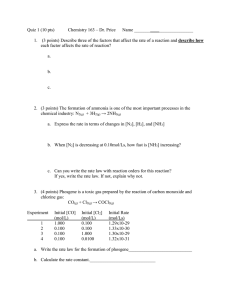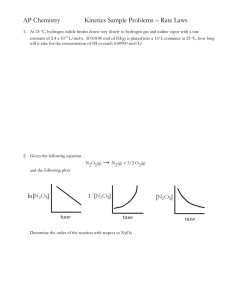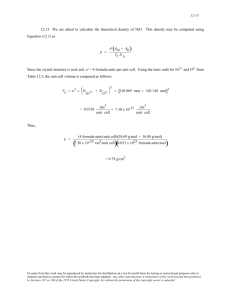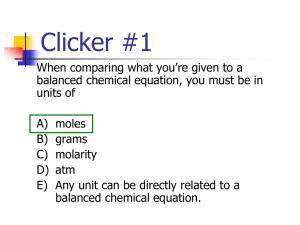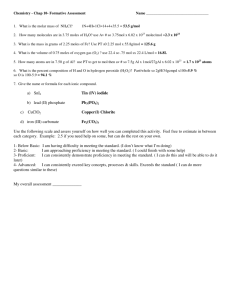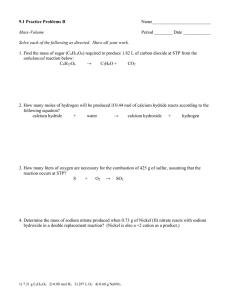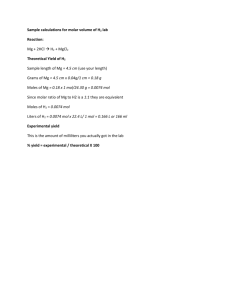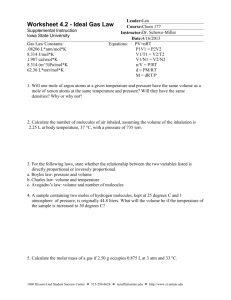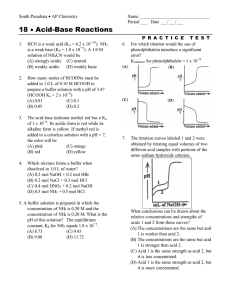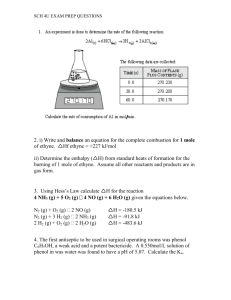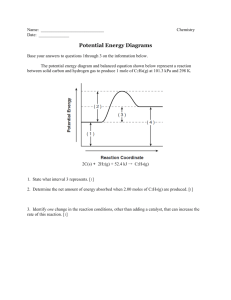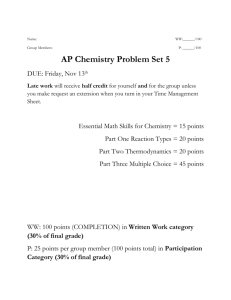Thursday, February 5
advertisement
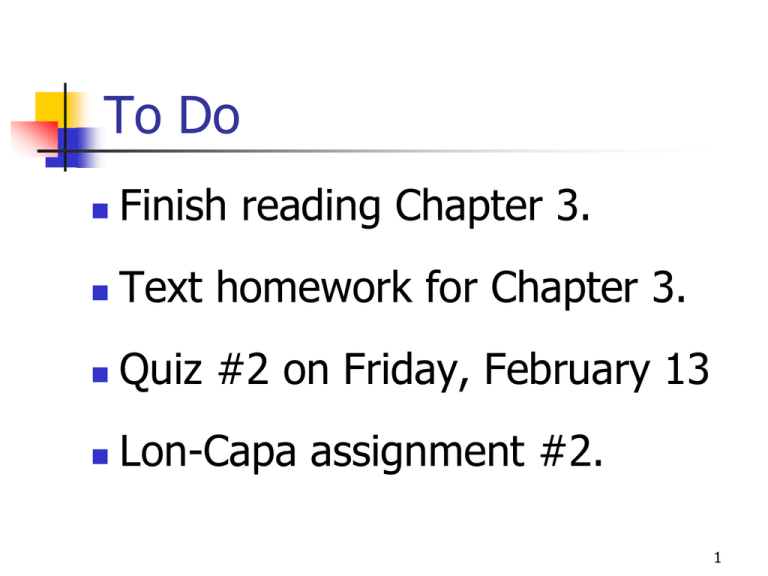
To Do Finish reading Chapter 3. Text homework for Chapter 3. Quiz #2 on Friday, February 13 Lon-Capa assignment #2. 1 N2(g) + H2(g) NH3(g) 2 Method 3: ICE Table Set up ICE Table [Initial, Change, End]. Amounts must be in terms of number of moles. At least one reactant is completely used up (goes to zero at End). Change row: same ratio as the balanced equation. N2(g) + H2(g) NH3(g) 4 Clicker Question How much ammonia (NH3) can be produced by reacting 6.0 mol of nitrogen gas with 6.0 mol of hydrogen gas? a) b) c) d) e) 2.0 mol 4.0 mol 6.0 mol 12.0 mol I don’t know 5 Determine Number of Moles Use mass and molar masses. [Chapter 3] Use volume and concentration for solutions. [Chapter 4] Use pressure, volume, and temperature for gases. [Chapter 5] A Question for You… A 5.000 g sample of copper reacts with oxygen in the air to form 5.629 g of an oxide of copper. Determine the name of the product. 7 Problem Solving Approach What are we trying to solve? That is “where are we going?” What does this mean? What do we know? That is, “where have we been?” What procedures do we know? That is, “how do we get there?” Requires knowledge and understanding! 8 Chapter 3: #170 A 2.25-g sample of scandium metal is reacted with excess hydrochloric acid to produce 0.1502 g hydrogen gas. What is the formula of the scandium chloride produced in the reaction? 9
